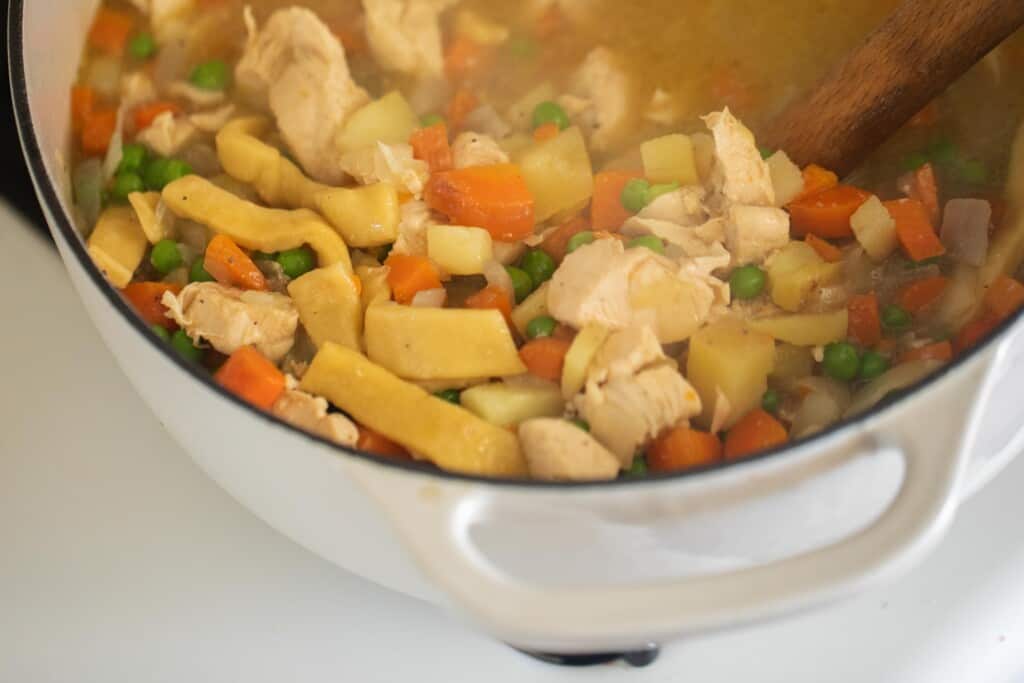Tips For Making Homemade Noodles:
- Although I prefer to use einkorn flour for this, you can use all-purpose instead.
- Don’t knead the dough too much. Work the dough just enough to bring it together and make it smooth. Overworking can cause the noodles to be tough.
- Allow the dough to rest 5-10 minutes before rolling out. For whatever reason, rolling out the dough is made simpler when it has rested.
- This dough can be prepared earlier in the day, sealed tightly, and stored in the refrigerator for a few hours.
This post contains affiliate links, which means you won’t pay me anything extra but I will receive a small commission. See my full disclosure here.

Should noodles be cooked before adding to soup?
They do not have to be. Usually, when the soup is almost done cooking, I just toss them in. You might think about cooking them separately and adding noodles to each individual bowl before adding the soup if you are preparing a double batch of soup to serve later. This keeps the noodles from becoming too soft in the fridge.
Sometimes I’ll cook the store-bought pasta on its own and add it to the soup afterwards.
This is due to the fact that store-bought ones often absorb more liquid, thickening the soup. Additionally, if they are left in the soup and reheated later, they often become extremely mushy and soft.

Tips for Perfect Egg Noodles:
Don’t Be Intimidated – This recipe is very forgiving. Unlike pie crust or pastry dough, which requires careful handling, egg noodles don’t require this kind of handling. You can’t over-mix them. You could add a tiny bit of water or milk if you think the dough is too “dry.” If it seems too sticky, sprinkle in some more flour. You really can’t mess them up.
To make the dough easier to work with and prevent the noodles from “shrinking” as you cut it, I’ve found that it helps to let it rest for five minutes before rolling it out and again after. Resting is optional, but I’d recommend it. While the dough rests, cover it with plastic wrap or a thin towel.